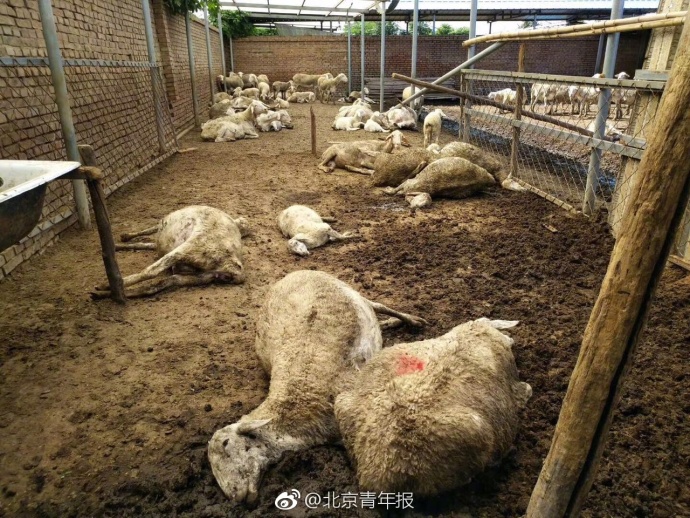Farmers jailed for tainting leeks with pesticide


Two farmers in northern China were sentenced to prison for selling toxic leeks to farmers in Shouguang, Shandong province, and causing the deaths of about 120 goats, according to a verdict posted online.
Meng Wenguang and Meng Fanjiang, both from Shenyang, Liaoning province, used phorate - a highly toxic pesticide that was banned in China in 2002 - to control plant diseases and insects on the growing leeks.
When the leeks were fully grown, Dong Shoujun, a vegetable trader in Shouguang, purchased 300,000 kilograms from the men and sold them to distributors.
After peeling off the leaves, the distributors sold the leeks to local farmers.
Some shepherds picked up the leaves from the farmers' storage area to feed their livestock, resulting in the deaths of the goats.
The Shouguang public security bureau found high levels of phorate in more than 250,000 kg of leeks, according to information about the case posted on China Judgments Online, which is operated by the Supreme People's Court.
The statement said the defendants had paid 188,000 yuan ($29,700) in compensation to the shepherds.
Liu Taiyuan, a shepherd from Shouguang, was one of those affected. He and his wife often collect leeks and leaves from a large vegetable warehouse nearby to feed their goats.
More than 80 goats suddenly died one morning in August after eating the leaves he had collected, Liu said. Another household also lost dozens of goats.
"We've been feeding our goats with leek leaves for nearly 10 years," said Liu's wife, Wang Chunzhi.
Meng Wenguang was sentenced to seven months in prison and fined 80,000 yuan. Meng Fanjiang got six months in prison and was fined 50,000 yuan.
Experts warned of the risks of using illegal pesticides. Science and food safety writer Yun Wuxin said the leaves the goats ate were old and retained a high concentration of pesticide residue.
"Also, the goats ate large amounts. It's a staple food," Yun said.
He said that a high intake of pesticides could cause people to die and strongly advised the government to further strengthen the supervision of pesticide use.




































